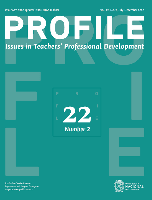
Profile-Issues in Teachers Professional Development
Scope & Guideline
Fostering Excellence: Bridging Research and Teacher Development
Introduction
Aims and Scopes
- Teacher Identity and Agency:
This area examines how teachers perceive themselves and their roles within the educational landscape, focusing on identity construction and the agency teachers exert in various contexts. - Professional Development Practices:
The journal emphasizes innovative professional development frameworks, including collaborative, reflective, and critical pedagogical approaches that enhance teacher competencies. - Feedback and Assessment in Language Teaching:
Research on feedback mechanisms, assessment practices, and their implications for language learning and teaching is a core focus, exploring both teacher and student perspectives. - Cultural and Contextual Influences:
The journal highlights the significance of cultural contexts in language teaching, including interculturality and the impact of local educational policies on teaching practices. - Technology Integration in Language Education:
Exploration of how technology can be effectively integrated into English language teaching, including online platforms and digital tools for enhancing learning outcomes. - Research and Collaboration in Language Education:
The journal promotes studies that explore collaborative research initiatives among educators, emphasizing the importance of networking and community building in professional development.
Trending and Emerging
- Critical Pedagogy and Reflective Practices:
There is an increasing focus on critical pedagogy and reflective practices, encouraging teachers to challenge existing norms and engage in self-reflection to improve their teaching methods. - Impact of COVID-19 on Teaching Practices:
Research examining the effects of the COVID-19 pandemic on teaching practices, including emergency remote teaching and its implications for teacher training and professional development, is gaining traction. - Multimodal and Digital Literacy:
Emerging themes around multimodal teaching strategies and digital literacy highlight the need for teachers to develop diverse instructional methods that cater to various learning styles. - Intersectionality in Education:
There is a growing interest in examining intersectional identities within the classroom, particularly how gender, race, and socio-economic status affect teaching and learning experiences. - Collaborative and Community-Based Learning:
The trend towards collaborative learning and community engagement is evident, with a focus on building partnerships between educators and local communities to enhance language education.
Declining or Waning
- Traditional Language Teaching Methods:
There has been a noticeable decline in research centered on traditional methods of language teaching, suggesting a shift towards more innovative and contextualized approaches. - Generalized Teacher Training Programs:
The focus on broad, generalized teacher training initiatives appears to be waning, with increasing emphasis on tailored and context-specific professional development practices. - Monolingual Perspectives:
Research that solely emphasizes monolingual approaches to English language teaching is decreasing, as there is a growing recognition of the importance of multilingualism and diverse linguistic backgrounds. - Static Assessment Practices:
The exploration of static assessment practices is becoming less frequent, replaced by studies that investigate dynamic, formative assessment approaches that engage both teachers and students. - Theoretical Frameworks Without Practical Application:
Papers that discuss theoretical frameworks without connecting them to practical applications in the classroom are less prevalent, indicating a demand for research that bridges theory and practice.
Similar Journals
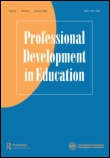
Professional Development in Education
Fostering Continuous Learning for Education ProfessionalsProfessional Development in Education is a premier academic journal published by Routledge Journals, Taylor & Francis Ltd, focusing on advancing knowledge and practice in the field of education. Since its inception in 2009, this esteemed publication has achieved a prestigious Q1 ranking in Education and is recognized within the top 12% of its field, evidenced by its Scopus rank of #172 out of 1543 in the Social Sciences Education category. The journal serves as a vital platform for educators, researchers, and practitioners, aiming to foster continual professional growth and enhance pedagogical practices through empirical research, innovative methodologies, and insightful discussions. While it is currently not available as an open access journal, the extensive and rigorous analyses published within play a crucial role in shaping contemporary educational discourse. By referencing state-of-the-art research and critical evaluations, Professional Development in Education stands as a key resource for those dedicated to improving educational outcomes and professional practices worldwide.
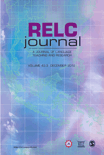
RELC Journal
Challenging Perspectives, Inspiring Change in Language EducationRELC Journal, published by SAGE Publications Ltd, stands as a leading platform in the fields of Education and Linguistics, boasting an impressive Q1 ranking in both categories according to the latest metrics. Established in 1970 and continuing its commitment to academic excellence through 2024, the journal features rigorous peer-reviewed research that explores the intersections of language, culture, and pedagogy. With a notable Scopus ranking that places it in the 98th percentile for both Language and Linguistics (Rank #16/1088) and Education (Rank #91/1543), the RELC Journal is essential for scholars, educators, and practitioners seeking to contribute to and stay abreast of cutting-edge developments in their respective fields. Although currently not open access, the journal remains accessible to a diverse audience and invites contributions that challenge conventional perspectives and inspire innovative practices in language education.
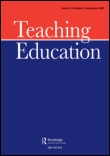
Teaching Education
Advancing educational excellence through innovative research.Teaching Education, published by Routledge Journals, Taylor & Francis Ltd, is a pivotal journal in the field of educational studies, with an ISSN of 1047-6210 and an E-ISSN of 1470-1286. Established in the United Kingdom, this journal has significantly contributed to the discourse on educational theory and practice since its inception in 1987, with a focus on research that enhances teaching methodologies and promotes effective learning environments. With a commendable Scopus rank of 419 out of 1543 in the Social Sciences - Education category, placing it in the 72nd percentile, it attracts a diverse range of scholarly contributions that elevate the quality of education worldwide. Although it does not offer open access, Teaching Education remains an essential resource for researchers, educators, and policy makers interested in the latest developments and insights in educational practices, making it a valuable addition to any academic library.

Language Learning in Higher Education
Pioneering insights into contemporary language education challenges.Language Learning in Higher Education is a prominent academic journal published by DE GRUYTER MOUTON, dedicated to exploring the intricate dynamics of language acquisition and pedagogical practices within the higher education context. With a robust ISSN: 2191-611X and E-ISSN: 2191-6128, this journal provides a platform for innovative research that addresses contemporary challenges and methodologies in language education. The journal enjoys a favorable reputation in the academic community, as evidenced by its ranks in the Scopus database, where it holds a position in the 67th percentile for Language and Linguistics and is classified in the Q3 and Q2 quartiles across relevant education and linguistics categories. Since its convergence in 2017, Language Learning in Higher Education aims to enrich scholarly discourse by publishing high-quality articles that foster insights into effective language learning strategies, thus serving as an essential resource for researchers, educators, and students committed to enhancing language education. The journal's editorial team is devoted to advancing the field through rigorous peer-review processes and welcomes contributions that push the boundaries of language learning research.
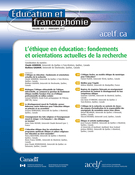
Education et Francophonie
Elevating the Discourse on Francophone EducationEducation et Francophonie is a distinguished academic journal published by the Association Canadienne d'Éducation en Langue Française (ACELF), dedicated to the exploration and advancement of research in the field of French language education. With its ISSN 0849-1089 and E-ISSN 1916-8659, this journal serves as a vital platform for scholars, educators, and practitioners to disseminate their findings and engage in meaningful dialogue about the educational challenges and innovations within Francophone contexts. Although currently lacking in open access options, the journal's rigorous peer-review process ensures the publication of high-quality, impactful research that rigorously addresses the needs and dynamics of French language education in Canada and beyond. As a key resource for researchers and professionals, Education et Francophonie fosters a deeper understanding of pedagogical strategies, policy development, and cultural integration in language education, making it indispensable for anyone invested in the francophonie and education sectors.
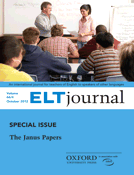
ELT Journal
Empowering Educators with Cutting-Edge ResearchELT Journal, published by Oxford University Press, is a premier academic journal dedicated to the fields of Educational Psychology, Linguistics, and Language, boasting an esteemed Q1 category ranking across these disciplines. Since its inception in 1946, the journal has served as a vital platform for researchers and educators, offering insights into English Language Teaching (ELT) and the evolving pedagogical practices that influence language acquisition and literacy development. With an impressive Scopus ranking placing it in the 95th percentile within the Arts and Humanities (Linguistics and Language), ELT Journal not only contributes to academic discourse but also bridges theoretical frameworks with practical applications in educational settings. Although it does not currently offer Open Access, the journal remains essential for professionals and students alike, eager to stay abreast of the latest research trends and innovations in the global ELT landscape. For those committed to advancing their understanding of language education, the journal's diverse range of articles and case studies provide invaluable resources.
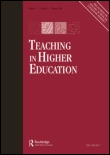
TEACHING IN HIGHER EDUCATION
Advancing pedagogical excellence in higher education.TEACHING IN HIGHER EDUCATION is a premier academic journal published by Routledge Journals, Taylor & Francis Ltd, dedicated to advancing the scholarship and practice of teaching within the higher education sector. With an ISSN of 1356-2517 and an E-ISSN of 1470-1294, this journal is widely recognized for its profound impact in the field, boasting a 2023 category rank of Q1 in Education, placing it in the top tier of educational research. Its commitment to fostering an inclusive and dynamic discourse on pedagogical methods and learning frameworks makes it essential reading for researchers, educators, and policymakers alike. Spanning topics such as student engagement, curriculum development, and innovative teaching strategies, TEACHING IN HIGHER EDUCATION aims to contribute to ongoing conversations and practical applications that enhance the educational landscape. While an Open Access option is not available, the journal maintains a robust readership, with its articles being rigorously peer-reviewed and disseminated to reflect cutting-edge research trends and practices in education.
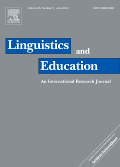
Linguistics and Education
Unlocking the Power of Language in Educational SettingsLinguistics and Education, published by Elsevier, is a premier journal dedicated to advancing the understanding of the intersections between linguistics and educational practices. With its ISSN 0898-5898 and E-ISSN 1873-1864, this journal has established itself as a significant platform since its inception in 1988, continuing to produce impactful research up to 2024. It enjoys a prestigious Q1 ranking in both the Education and Linguistics and Language categories, reflecting its high-quality contributions and leading role in the field. The journal’s Scopus rankings further underscore its influence, being placed in the 87th percentile for Arts and Humanities in Language and Linguistics, and the 86th percentile in Social Sciences in Linguistics and Language. Although it operates under traditional subscription access, its contributions are essential for researchers, professionals, and students alike, making substantial strides in the understanding of language, learning environments, and pedagogical strategies. The journal's objective is to foster interdisciplinary dialogue and disseminate innovative research that informs educational policy and practice.
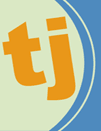
TESOL Journal
Fostering Dialogue in Language Acquisition and PedagogyTESOL Journal, published by Wiley, is a premier academic journal dedicated to advancing the field of Teaching English to Speakers of Other Languages (TESOL). With an esteemed reputation reflected in its high impact factor and its Q1 ranking in both Education and Linguistics and Language categories for 2023, this journal serves as a critical resource for researchers, educators, and policy-makers. It covers a wide spectrum of topics related to language acquisition, pedagogical innovations, and educational strategies in TESOL, contributing significantly to the discourse around multilingualism and effective teaching practices. The journal is notable not only for its rigorous peer-review process but also for its commitment to disseminating high-quality research that informs and inspires practice in diverse educational settings. Interested readers can access articles through traditional subscription methods, ensuring that groundbreaking research is available to a broad audience. With converged years spanning from 2010 to 2024, TESOL Journal continues to evolve, making it a vital publication for anyone interested in the complexities of language education.
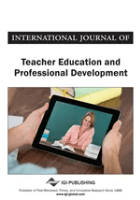
International Journal of Teacher Education and Professional Development
Advancing Knowledge in Teacher DevelopmentThe International Journal of Teacher Education and Professional Development, published by IGI GLOBAL, is a pivotal resource in the fields of education and professional development, dedicated to advancing scholarship and practice within teacher education. With a focus on innovative methodologies, current challenges, and best practices, this journal provides a platform for researchers, practitioners, and educators to disseminate their findings and insights. Although it currently operates under a non-open access model, articles are rigorously peer-reviewed to maintain high academic standards and contribute meaningfully to the discourse on effective teaching and learning strategies. By embracing diverse educational contexts and promoting a global perspective on teacher training, this journal serves as an essential tool for those committed to enhancing educational outcomes worldwide. Its engagement with contemporary issues ensures its relevance in academic circles and practical applications alike, making it a must-read for stakeholders in the educational landscape.